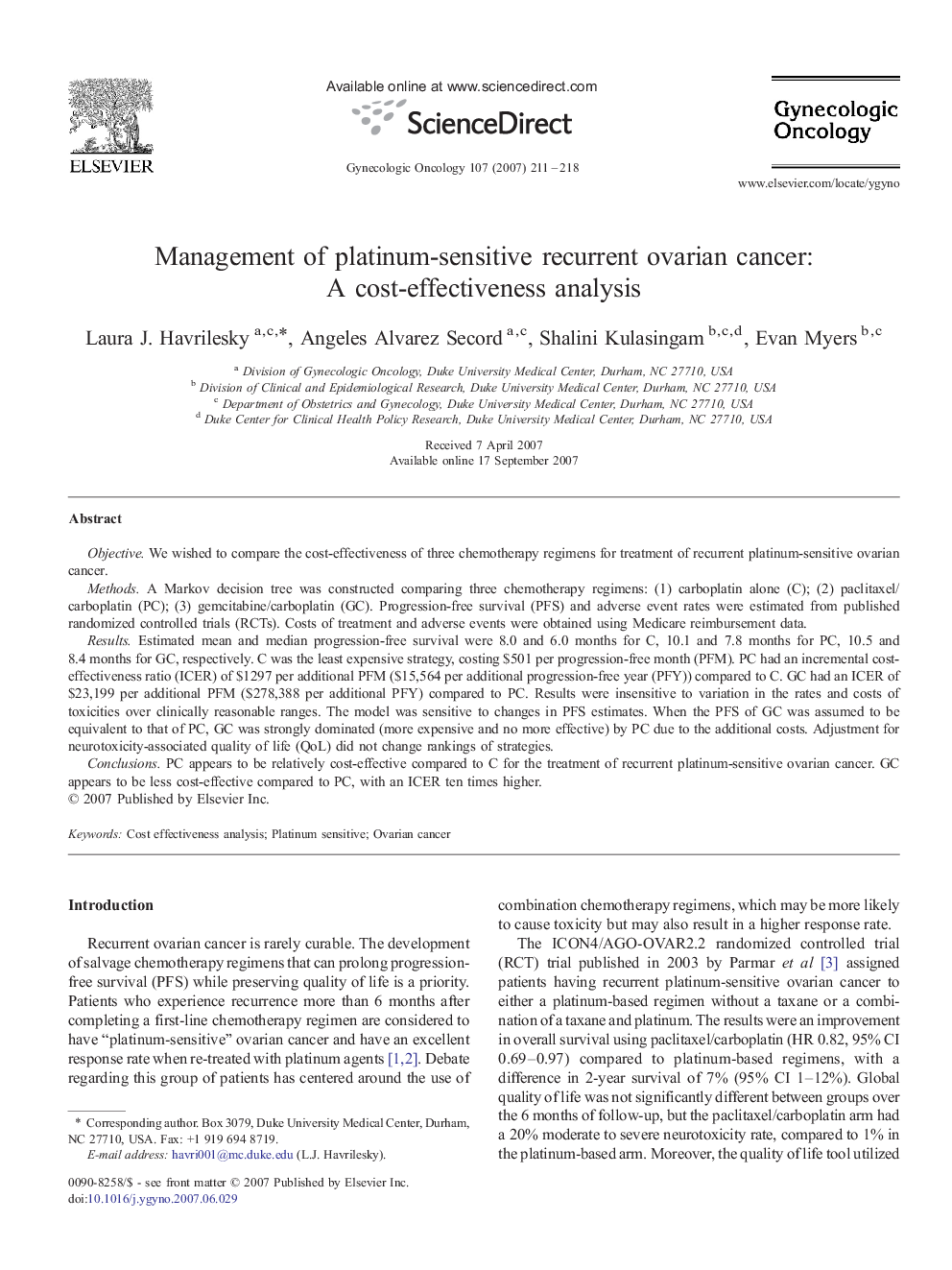| Article ID | Journal | Published Year | Pages | File Type |
|---|---|---|---|---|
| 3946177 | Gynecologic Oncology | 2007 | 8 Pages |
ObjectiveWe wished to compare the cost-effectiveness of three chemotherapy regimens for treatment of recurrent platinum-sensitive ovarian cancer.MethodsA Markov decision tree was constructed comparing three chemotherapy regimens: (1) carboplatin alone (C); (2) paclitaxel/carboplatin (PC); (3) gemcitabine/carboplatin (GC). Progression-free survival (PFS) and adverse event rates were estimated from published randomized controlled trials (RCTs). Costs of treatment and adverse events were obtained using Medicare reimbursement data.ResultsEstimated mean and median progression-free survival were 8.0 and 6.0 months for C, 10.1 and 7.8 months for PC, 10.5 and 8.4 months for GC, respectively. C was the least expensive strategy, costing $501 per progression-free month (PFM). PC had an incremental cost-effectiveness ratio (ICER) of $1297 per additional PFM ($15,564 per additional progression-free year (PFY)) compared to C. GC had an ICER of $23,199 per additional PFM ($278,388 per additional PFY) compared to PC. Results were insensitive to variation in the rates and costs of toxicities over clinically reasonable ranges. The model was sensitive to changes in PFS estimates. When the PFS of GC was assumed to be equivalent to that of PC, GC was strongly dominated (more expensive and no more effective) by PC due to the additional costs. Adjustment for neurotoxicity-associated quality of life (QoL) did not change rankings of strategies.ConclusionsPC appears to be relatively cost-effective compared to C for the treatment of recurrent platinum-sensitive ovarian cancer. GC appears to be less cost-effective compared to PC, with an ICER ten times higher.
